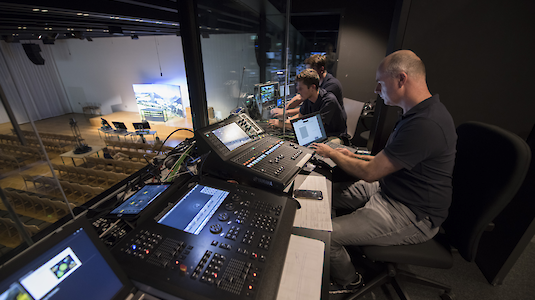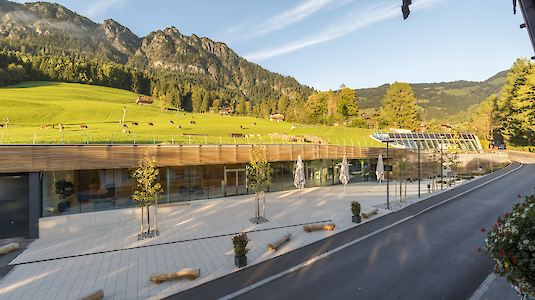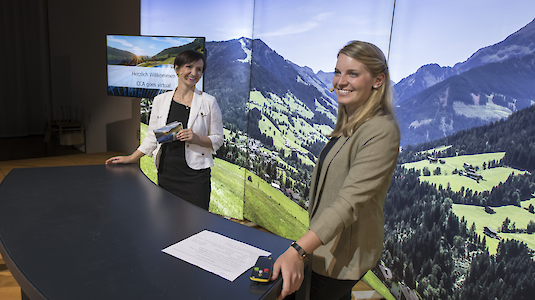Hybrid meetings as a chance for organisers and the environment?
Events like the European Forum Alpbach show that hybrid meetings - i.e. partly with online guests, partly with real guests on site - can help organisers to run events as Green Meetings despite restrictions and even become more environmentally friendly.
Due to Covid-19, the European Forum Alpbach (EFA) had to take place in hybrid form in summer 2020. "Hybrid" because some guests arrived on site and others joined in the online discussion. The organisers nevertheless tried, as in previous years, to meet the Ecolabel criteria for "green meetings".

Organisational challenges
More than 5000 participants from 134 countries took part, but unfortunately most of them only online. This means that about the same number of people took part in this year's forum as in the year before. More than 300 sessions with over 600 speakers from 23 countries around the world were streamed into the online conference. Thematically, the focus was on measures to eliminate the effects of the Corona crisis and above all on strengthening international cooperation.
All in all, there were far fewer guests in Alpbach itself. This also meant fewer flights and less waste.
From an ecological point of view, this is a great success. But we should not forget what the forum stands for: direct exchange of people from all over the world - scientists, politicians, students, old and young, who inspire each other in an informal setting.
If you want to portray this exchange digitally, it is a considerable challenge in terms of organisation and technology. The experts of the Congress Center and the organizing team of the Forum have mastered this mammoth task extremely well, but the experience of many hybrid events shows that the organizational effort and costs for a successful hybrid event are usually not less than for face-to-face events.
Mobility and CO2
Only around 700 people were able to attend the Forum 2020 in person. Most of the guests on site in Alpbach came from Austria, and there were also guests from other European countries. Above all, most of the guests from overseas were missing on site and in many cases could only participate online. As a result, there were naturally far fewer flights, which meant that CO2 emissions were significantly lower.
Waste generation
What surprised Michael Strehle of Forum Alpbach most was the massive reduction in waste: "The amount of waste produced on site by the event was only 20%. Above all, the reduction in paper waste was enormous. The evaluation is not quite finished yet, but the paper waste could have been only 5% of the usual amount. This is mainly due to the fact that our partners - including media partners - laid out much less information material".
Electricity consumption approximately the same
What remained more or less the same was the electricity consumption. This is also logical, because fewer guests on site also require light and heat. So there is hardly any potential for savings to be expected here when switching to hybrid events. Added to this is the streaming, which did not place a great strain on the congress centre itself, but which has enormous global effects.

Catering in the home office difficult to steer
In a typical face-to-face event, the catering often has a central function as an opportunity for personal, informal exchange and above all to show the Green Meetings organisers how important sustainability is to them, with many small details such as regional, seasonal, organic and vegetarian specialities.
"Of course it is difficult for us to control what people eat in the home office. We ourselves at EFA hire caterers who adhere to the criteria of a 'Green Meeting'," emphasises Michael Strehle.
For those attending hybrid events, all the options offered by green catering can be used. For the online participants, the primary appeals and motivating suggestions and tips for a sustainable culinary break are offered. For smaller or particularly high-quality events, however, it would also be possible to send participants sustainable "packed lunches" or similar in advance or to make them available in some other way.
So it seems that Covid-19 is at least making meetings more sustainable in some aspects. Strehle concludes by saying that in future events could be oriented towards EFA 2020 to find ways of making "green meetings" easier to organise.
Author: Karin Chladek
